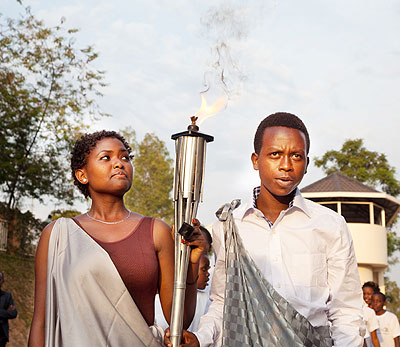Editor,REFERENCE IS made to Jan Eliasson (UN Deputy Secretary General)’s article, “We must not forget how the world failed Rwanda”, published in The New Times on January 17.


Editor,REFERENCE IS made to Jan Eliasson (UN Deputy Secretary General)’s article, "We must not forget how the world failed Rwanda”, published in The New Times on January 17.There is this consistent attempt by the UN to rewrite the organisation’s decision-making leading to, during and after the 1994 Genocide against the Tutsi to make it look as if it was a result of failure.This is pernicious revisionism which deprives the world of the opportunity to draw the right lessons from this well predicted and thus preventable international crime.The most important fact from which to start is that the Genocide wasn’t a result of any failure.Everyone knew what was afoot, but the major UN Security Council powers that could have made a difference were either in collusion with the genocide planners (the specific case of France) or did not care enough to overcome their reluctance to oppose a fellow UN Security Council permanent member and NATO ally (the case of US and UK).Post-USSR Russia was still a marginal power in global political decision-making and China is always reluctant to take the lead in matters beyond its borders, even today when its global trading status means geopolitical developments are of critical importance to Beijing’s policy-makers.The few UN Security Council diplomats to express concern with the way UN was handling the Rwandan crisis and which they could clearly see was leading to a human catastrophe (Ambassadors Kovinda of Czevhoslovakia, Keating of New Zealand and Gambari of Nigeria) had little power as representatives of non-permanent members to counteract French pro-genocidaire influence at the UN.And so by default (which is itself a form of a decision) the UN decided to let matters unfold as they did and let the genocidal chips fall wherever they might. It is quite possible the major Security Council powers and the Boutros Boutros Ghali-Kofi Annan’s secretariat never believed, even with the Genocide, the parallel military conflict would end in stalemate and the UN would be called upon to help negotiate and oversee a settlement.None of them could foresee in 1994 that the RPA would completely defeat the genocidal forces and thus become the principal determinant of Rwanda’s post-Genocide political dispensation.The real lessons of the UN’s criminal malfeasance in the Genocide against the Tutsi is that as long as UN geopolitical action is driven not by universal principles of equality of all nations and equality of the value of each human life but rather by the narrow selfish interests of the major permanent members of the UN Security Council, then more genocides are inevitable.The current UN action in the DRC in which the focus has been on the M23, ignoring or even empowering the FDLR heirs to the 1994 genocidaires is proof positive that nothing has changed.Nothing will until the global governance system and structure are reformed in such a way that international action truly reflects globally agreed universal principles rather than the narrow interests of a few powerful states.Mwene Kalinda, Rwanda


